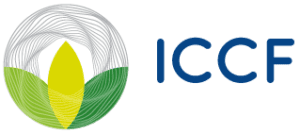Who We Are
The International Cooperation for Convergence of Technical Requirements for the Assessment of Feed Ingredients (ICCF) aims to develop and establish common guidance that covers technical requirements for the assessment of feed ingredients, including new uses of existing feed ingredients.
ICCF is the result of bringing together feed regulators and industry feed associations to work collaboratively in developing common views and understandings on the technical information needed for the assessment of feed ingredients.
The founding members of the ICCF are:
- The Canadian Food Inspection Agency (CFIA) and the Animal Nutrition Association of Canada (ANAC)
- The European Commission (DG SANTE) and the EU Association of Specialty Feed Ingredients and their Mixtures (FEFANA)
- The U.S. Food and Drug Administration (FDA) and the American Feed Industry Association (AFIA)
- The International Feed Industry Federation (IFIF)
Through their work, the ICCF members aim to facilitate the approval or authorization of feed ingredients across jurisdictions to support the feed and food chain to meet the global growing demand of animal products, sustainably and safely.
In addition, the guidance documents will be made available for reference and use by other jurisdictions around the globe.

Process
We develop guidance documents by consensus in a structured process with the following milestones:
1. Initial Drafting
Experts from each ICCF member participate and contribute to the Expert Working Groups during the initial drafting of the guidance documents, based on a Terms of Reference provided by the ICCF Steering Committee.
2. Public Consultation
To further improve their quality, initial draft guidance documents are subject to an open public consultation process, where all interested stakeholders can provide their input.
3. Consideration of Comments
The members of the Expert Working Groups consider all comments received during the public consultation when drafting the final guidance document.
4. Publication
When consensus is reached, the final guidance document is published, and it is publicly available.
Structure
Members of ICCF are a combination of international regulatory authorities and industry associations involved with the risk assessments of feed ingredients.
The Full Members of ICCF are:

Canada
represented by the Canadian Food Inspections Agency (CFIA) and the Animal Nutrition Association of Canada (ANAC)

European Union
represented by the European Commission Directorate General Health and Food Safety (DG SANTE) and the EU Association of Specialty Feed Ingredients and their Mixtures (FEFANA)

United States of America
represented by the Food and Drug Administration (FDA) and the American Feed Industry Association (AFIA)

The International Feed Industry Federation (IFIF)
facilitates the global reach of the work of ICCF within the feed industry
Observer Members
Observer members are invited to participate and contribute to the development of guidance documents. By joining, you will benefit from:
- networking with experts in risk assessment
- participating in knowledge sharing on regulatory frameworks and risk assessment
- contributing with your peers in the development of the guidance documents
Steering Committee
ICCF is structured around a Steering Committee with Expert Working Groups developing the guidance documents according to a pre-defined multi-year plan.
The ICCF Steering Committee is composed of two representatives from each Full Member jurisdiction, one representing the regulatory authority and one the industry association.
The current members of the Steering Committee are:
- David Johnson, representing CFIA
- David Edwards, representing FDA
- Almudena Rodriguez, representing DG Santé
- Melissa Dumont, representing ANAC
- Leah Wilkinson, representing AFIA
- Joerg Seifert, representing FEFANA
- Alexandra de Athayde, representing IFIF, current Chair
The role of the Steering Committee is to:
- Set the long-term agenda of the project organisation
- Set priorities within the list of guidance documents to be developed by Expert Working Groups
- Evaluate specific requests from members regarding the development of guidance documents
- Establish the Expert Working Groups
- Approve the scope of guidance documents to be developed following evaluation of initial feedback from the Expert Working Groups
- Approve guidance documents
- Define the communication strategy
- Evaluate the membership proposals from observers based on pre-defined criteria
